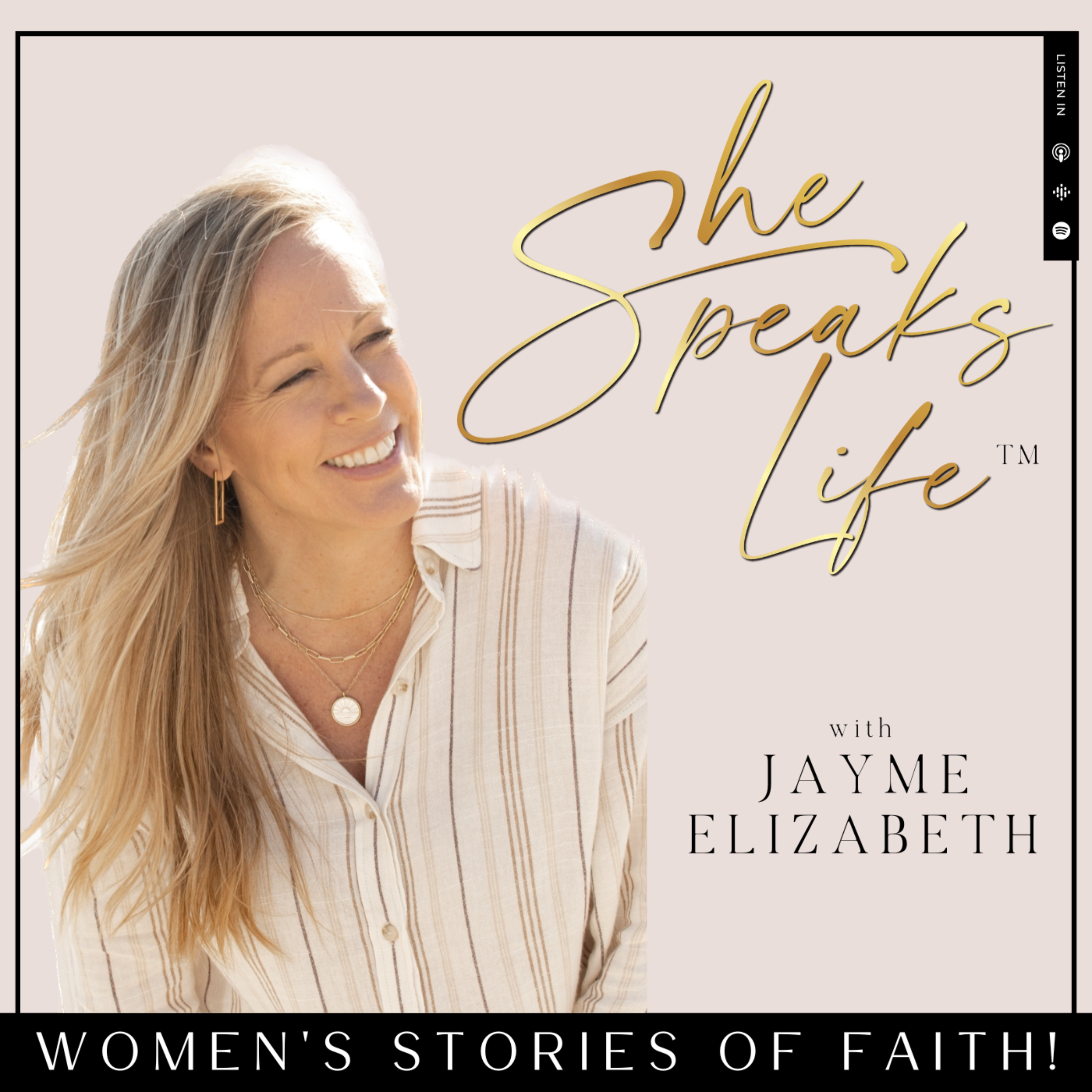.jpg)
Mindfully Integrative Show
Welcome to the Mindfully Integrative Podcast! We are dedicated to featuring inspirational and successful individuals who have embraced mindful investing to achieve optimal integrative wellness. Our podcast dives into all aspects of mindfully incorporating integrative functional health into our lives, aiming to help create a more balanced and fulfilling life. New episodes are released every Friday and cover a wide range of informative and entertaining topics, interviews, and discussions.
We explore a mindful approach to the mind-body connection with guests discussing various topics in integrative holistic health. This includes areas such as whole health, functional medicine, spiritual health, financial health, mental health, lifestyle health, mindset shifts, physical health, digital health, nutrition, gut health, sexual health, body positivity, family health, pet health, business health, and life purpose, among others.
Dr. Damaris G. is an Integrative Doctor of Nursing Practice, a Family Nurse Practitioner, a mom, and a veteran. For collaboration, interviews, or to say hi, you can contact her via email at damaris@mindfullyintegrative.com. You can also find her on LinkedIn at or https://www.linkedin.com/in/damarisdnp/. To join our membership and access resources, visit our website at https://mindfullyintegrative.com .
Please note that the information shared here is for informational and educational purposes only and should not be considered medical advice. Always consult with a physician or other licensed healthcare provider when making healthcare decisions. Enjoy the podcast!
Mindfully Integrative Show
Bonus Episdode Mindful Chat with Lauren Integrative Speech Therapist & Yoga Teach SPOGA
This episode is only available to subscribers.
Mindfully Integrative Show + Bonus Episode
Exclusive access to premium content!Lauren Kriston SPOGA
As a yoga teacher and speech therapist, I incorporate lots of breathwork, guided meditation, reiki, and somatic movement - to assist clients with improving communication in their homes and daily lives.
From working with clients in the rehabilitation setting, to working with clients in early language development, one thing has always been a constant. Much of what we communicate happens nonverbally, and within these internal dialogues there is an inner guidance available to us when we learn how to listen.
SPOGA “Spoken Yoga”™️ is my mindfulness in motion program that combines clinical therapy, the physical application of relaxation, and mindfulness techniques to improve communication and wellness outcomes for children, young adults, and seniors.
In 2018, I joined the practice at Jennifer Layne Acupuncture and Wellness, in Rutherford NJ and the rest is history. We‘ve done some really exciting work, like developing the School Based Mindfulness and Wellness Curriculum in Hudson County Schools. The practice offers clients a wide base of services within their wellness journey including Acupuncture, Theraputic Massage, and Counseling/Psychotherapy.
During the recent closings and online transition - I have been working to meet the needs of the community virtually, as well as once a week in-person + mini immersion workshop experiences. It’s truly been an honor to open space for the community during this time and I look forward to resuming in-person sessions & therapy in the near future.
Thanks so much for being here!https://laurenkristonwellness.com/about
Sponsor Affiliates
Empowering Your Health
Get YOUR Own
Joburg Protein Snacks
Discount Code: Damaris15 Or Damaris18
Feeling need to Lose Weight & Become metabolically Healthy
GET METABOLIC COURSE GLP 1 REseT
This course is designed for individuals looking to optimize their metabolic health through integrative and functional medicine approaches. Whether you're on a GLP-1 medication or seeking natural ways to enhance your metabolic function, this course provides actionable steps, expert insights, and a personalized roadmap sustainable wellness.
Are you feeling stressed, tired, or Metabolism imbalanced?
Take advantage of our free mindful steps to help improve your well-being.
ENJOY ONE OF our Books
Mindful Ways Health Wealth & Life
https://stan.store/Mindfullyintegrative
Join Yearly membership ALL IN ONE FUNCTION HEALTH
Ask Us for help...
Hi, how are you, Mrs. Damaris Maria Grossman and this is the mindfully integrative show. And today we have an amazing guest for our mindful chat. Her name is Lauren, Kristen. And she is not only a speech pathologists, but she's also a yoga and wellness enthusiast. And she kind of has integrated this into her practice with her patients and into her life. So I really can't wait for you guys to need her. Hey, Lauren, how are you?
Lauren Kristen:I'm well, thank you so much Damaris. Thank you for having me.
Damaris Grossmann:Of course, I'm so glad to be able to kind of join in. And I love for people to learn more about you. But let's kind of get into like a little fun fact that people might not know if they went and looked up.
Lauren Kristen:Okay, um, fun fact would be that I actually started out in education for teaching elementary. I was maybe halfway through my program there. And I kind of decided to do a little shift and change paths. So that's something interesting. And then also that, I would say I played violin for maybe like 15 years. Yeah. And so I'm always looking like little ways to get back into it. But it was a really meaningful time in my life. And a lot of people are always very surprised to hear that. So I'm definitely a big background in music. And I just
Damaris Grossmann:love violin. Oh, that's so cool. Yeah, I'm hoping that my son gets into strings, because my husband plays. That's so beautiful violence difficult to play.
Lauren Kristen:Yeah, it's super, it's super involved, very complex. And I studied at the Garden State Academy. I don't know if there's still an active studio Academy rather. But it was a pretty rigorous and I just remember, like, my mom's setting the kitchen timer for like, 30 minutes a day and practicing. So it was involved. And that's probably got a little bit to do with, right. Like, I think just letting a child be led to whatever instrument like resonate with them, right? Because we have these ideas of like, Hey, I'd love for my child to do this. So I was very fortunate, very lucky for my mom to, you know, expose me to that at an early age. Yeah, but my grandmother will always make a joke. She's like, Yeah, you're like three years old, and your recitals, and everybody's bows are going up and more going down. Right. So it's just super
Damaris Grossmann:funny. Oh, just learning how to. Yeah. Ah, yeah, it wasn't super talented on that end. But my husband's definitely the more of the music genius in the family. Oh, for sure. Yeah. Um, so, you know, obviously, you know, this is a Integrative Health show. But I always love having people on the show to talk about, you know, things that they're doing. And you and I have touched base and connected through acupuncture office, Jennifer liens, but also because we believe in, you know, alternative and integrative Well, wellness for others. So please tell me what you're doing now. Like, kind of what got you to your story, because you're a speech pathologist and explain to people what that is, and then kind of where your story came to transition from what you've been doing to that. Okay,
Lauren Kristen:awesome. Yeah. So, as a speech and language pathologists, it's, it's interesting because I was trained at New York Medical. So you're talking like training with the med students. We did like the gross anatomy and the cadaver, and all of that, right. So the goal was, I'm going to work in a hospital, and typically with adult patients, post CVA, post stroke, TBI, all of that. And while I had a great time, and I really do enjoy that line of work, you know, after studying I find, again, this is one of those moments where life just kind of puts you and lead you where you need to be. Fast forward several years later, and I am crisscross applesauce on people's living room floor, conducting early intervention for birth to three, you know, like playing with playdough. So, um, that's a little bit of like how I got involved with speech therapy. I was always involved in health care, one aspect or the other. Like before school, I worked in a group home with adults with developmental disabilities. So it's always something that's been really truly near and dear to my heart. But I was always interested in this idea of like, how people communicate. And I do think something that a lot of people even like friends of mine don't know is that when I was younger, my stepbrother had CP cerebral palsy, so he never spoke, he never moved, he was bedridden, right. And so I learned at a very, very, very early age that people communicate, whether it's verbally or non verbally, so I do feel for many reasons, I was definitely led into this field. And I think mostly when I started working with the little ones with birth to three, that's when I kind of realized this Hold God, these kids like, you know, they're having a moment they intuitively soothe themselves. And you've seen this I'm sure going into various these yoga know
Damaris Grossmann:about that. And we I mean, we connect it because we both worked with little ones and it's a big connection with us. Yeah. So you were the little guys are talking and communicating and what did you seeing with that
Lauren Kristen:I just saw like the need to kind of have a moment. And you know whether it was, if they were having a moment where somebody might call it a tantrum or a meltdown, right, it's less of this model of like, putting them in a timeout, it's like, Alright, let's take a pause, let's take a moment and like tune in, right, like a time in what's happening for them. And I saw innately like these, these soothing mechanisms that were existing for them. And whether it was like putting themselves into like a little child's pose, or hugging their knees, or whatever it was. So that's really a big part of my practice is trying to find ways to work with I guess a more, if you want to call it like a more medically driven model, but as well like those Eastern philosophies of like, the whole child, right, and helping them, yeah, communicate in that way, for sure. Because they have a lot to say, whether it's verbally or non verbally, or just somewhere in between, right. So, um, and that's a little bit of the work with the parents that I do is like this active listening.
Damaris Grossmann:And it's so important, because I think there's a lot of individuals out there, say, I'm listening, I hear you, and you're like, Are you actively really taking that time? You know, yeah, I mean, we're both Yogi's, so we'll talk about that soon. But you know, that intuitive thinking and that listening part, it takes some time in practice, right, and teaching the parents and family is that challenging.
Lauren Kristen:Um, it depends kind of how receptive you know, I find that a lot of the parents like, in our age group, and even some of the younger parents, especially, like they are very receptive and very open to this way of helping their children and assisting their children in whatever modality, whatever it is right there to incorporate it. So I do find that there, everybody seems to be for the most part very receptive, and are like, Hey, you have some tools for me? Let's hear it, you know?
Damaris Grossmann:Yeah, I mean, I was just telling you before, I'm like, Oh, my gosh, you helped moms and then like, Lauren, your you help moms and these kids that, you know, to help them communicate in the most open and expressive way. And you kind of came up with your own little thing, because, you know, we didn't fully talk about your full story. So given you your family, and then you were saying that your your speech pathologist, but you're also a yoga teacher. So how did you incorporate it? Because you call it school? Go right. Even trademarked it a little bit, you know? So that a little bit for me?
Lauren Kristen:Absolutely. Um, yeah, so through my own desire and exploration with yoga, um, I kind of decided to start incorporating bits and pieces of that, for speech therapy for my clients. So Boga is this combination of speech therapy and yoga, and I have different classes and groups and kind of programs. But within it, really, it's this idea of communicating mindfulness, right. And I definitely am very inspired by Maria Montessori here. And she says something really profound. The real preparation for education is the study of oneself. So I think it's this idea of teaching both parents and then children in real time, about how to navigate some of their emotions and the things that at times, can somewhat interfere with the learning process. So I really love that whole idea of like integrative right, the speech therapy and the yoga. So again, it's like using the stimulus of movement at times, whether it's through yoga postures, and then this application of relaxation. So helping them find their breath. Just take a moment. And I always tell everybody, even though I work with little kids and moms, I also work with, you know, a lot of women in our age group and honestly, in their 60s, and it's like your pauses carry power, like there is just this moment that if we can, like tune in and listen, I think it's a huge, a huge bonus for us. So smoker really works on developing children who are mindful doers. And then again, this piece of active listeners, right, so yeah, I really do. I think it's very helpful for them. And it's like the kid that's always getting up in class and doing this and doing that. It's like, well, have we checked in with their sensory system? Are they really even paying attention yet? It's like, we have all these other things, these tools that can help them so that's definitely Where I try and come in and kind of help them communicate.
Damaris Grossmann:So amazing. I mean, I think that every kid learns differently and they express themselves. And you're kind of finding their own. I'm in emotional intelligence is pretty. It's not, it's hard. It's not always taught, right? Yes. And to be a parent, and then you being a provider and a guide to help these parents. It's important. It's really important. So you're like, not just teaching them about, communicate, but emotionally communicate? And expressing themselves? That's awesome. Yeah, absolutely. Yeah. So would you like to talk a little bit, you know, of your journey in that, like, how your communication changes? Or how like a path? Or, you know, for a client, or both?
Lauren Kristen:Yeah, yeah, absolutely. Um, so I can also give the example of a parent, we actually just stopped working together, her daughter was doing really great, but we still keep in close contact. And she made a joke, she's like, you know, you signed on to be her speech therapist, but really, you were my therapist and guiding me in the language that I use to, you know, elicit some more communication from her. And so I'm kind of working with that model of like, mindful communication, that's a big part for me. And then my own personal experience is like, seeing myself, um, you know, how much more regulated that I can be, once I have used that stimulus of movement, or that application of relaxation, whether it's breath work, or even a meditation, children are just so receptive. And in my work, we're both in medical in the acute care and subacute, with the older population, and then this very young, young young population, I find that people who are coming into lifespan and on your way out transitioning, like, they just tend to be very porous, very receptive, very open. So it's never like the kids are not online, they're already online. And we're just kind of teaching them and modeling in a very mindful way. Right? So it's kind of how to use their language, how to be more involved with their social interactions, and developing that theory of mind, right? Like, hey, there's another way that I could do this, or maybe mommy, maybe Mommy has a different thought about this. But again, these are things that children are, they're learning, right? They're learning as they go. And, and I think, gosh, if we had this kind of stuff, when I'm going back in the day, right, that would have surely benefited somebody like myself, I was a very visual learner, right? So in school, I had a hard time, with all of this instruction and this auditory comprehension piece, it wasn't really a lot for me to absorb. And while I was able to hack it at New York Medical, right, I found myself studying for longer than other students. So that's really kind of when I honed in on like, this mindfulness, this meditation, yoga, and it helped me and I thought, hey, you know, what, if we could get them started a little bit earlier, and give them some tools. So that was really my purpose behind this,
Damaris Grossmann:that I mean, I can relate to you on that being a different kind of learner and talk about that with my husband and I, we say like, yeah, just the way that we learned or the way I learned was very different. I also was more on the visual, I have to, um, to get through my programs, my doctoral program, I had to do audio visual, so I had my papers read to me. Yeah, so and where I look visually audio, so when I was writing, I do so like I even do is text to speech. So I had to completely I, you know, I grew up with a disability and it was like, Oh, my gosh, the, the, you know, overcoming is huge, you know, and then being able to see that your mindfulness and all these techniques, change that your, your way of learning for yourself, but then teaching other people. I think that's profound. And that's why it's like, these little tips are so important. Would you like to, I mean, I'm gonna have all your information in show notes for those who reach you. But would you like to, you know, go over, because you're a wonderful yoga teacher, or even a therapist, I just like a mindful tip. I say my whole way that you love to share with the audience before you have to go or or if you have more to share.
Lauren Kristen:Yeah, absolutely. I would say, um, my mindful tip would be to just whether you're a parent or just somebody exploring yoga and mindfulness. It's like giving yourself that moment to kind of pause, settle in and take a breath. One of my favorite teachers, elder teacher says, like, you know, taking a breath is so important. It's the first thing we do as we come in and one of the last things we do on the way out so when you really get to work with your breath, right? It's always Like checking where your breath is, you know, are you really like up here in the more like chest modality, right, and just trying to ground everything down a little bit. And any little mindful ways, whether it's having a little visual reference for yourself and having it on the refrigerator, I find that we are so inundated with information, right? In today's culture, and in our society, rather. So it's like having those mindful moments having that moment to like, see, how am I breathing here? Can I just allow this to just have a moment. And I only say that, you know, the kids do really, really well, naturally with this when they're guided. And I think in our kind of area, the work that we do, it's like, as much as we can help them, right. It's just finding the breath, finding a moment, your pauses do carry power. And then from there, right, true learning occurs. So that's really
Damaris Grossmann:so profound. Yeah, the true learning and then you're saying and they kind of find themselves so then they can express them and be better for others like and for themselves down the road. I and I do love Montessori to fix Greta platform. Airways, I think there's just a lot of different things, ways of learning, but you're right, it's just kind of centering and I totally agree. Um, I can't wait for those to be listening to you and to find you for you know, your upcoming workshops. And, and then I know you also are at a, you have your own practice. So for those to kind of reach out to you. So what is your website? I'll have it on the show notes, too.
Lauren Kristen:Sure. It's Lauren, Kristen wellness.com. And my name is spelled la u r e n, k. r i s t o n. Lauren, Kristen wellness.com. Wonderful.
Damaris Grossmann:But thank you so much for being on the show today. And I thank you for your time and your wealth of knowledge are so inspiring, because you're not only you know, communicating others here, but communicating the moms and you know, giving a voice and helping those kids have voice when they don't have fun, too. I really appreciate you sharing your story. Thanks.
Lauren Kristen:Thank you so much, Damaris, thank you for your work and your time. Thank you.
Damaris Grossmann:And thanks, guys for being on the show. And as we say each and every day, find a mindful
Podcasts we love
Check out these other fine podcasts recommended by us, not an algorithm.

The Dr. Hyman Show
Dr. Mark Hyman
Functional Fertility with Dr. Kalea Wattles
Kalea Wattles
On Health for Women
Aviva Romm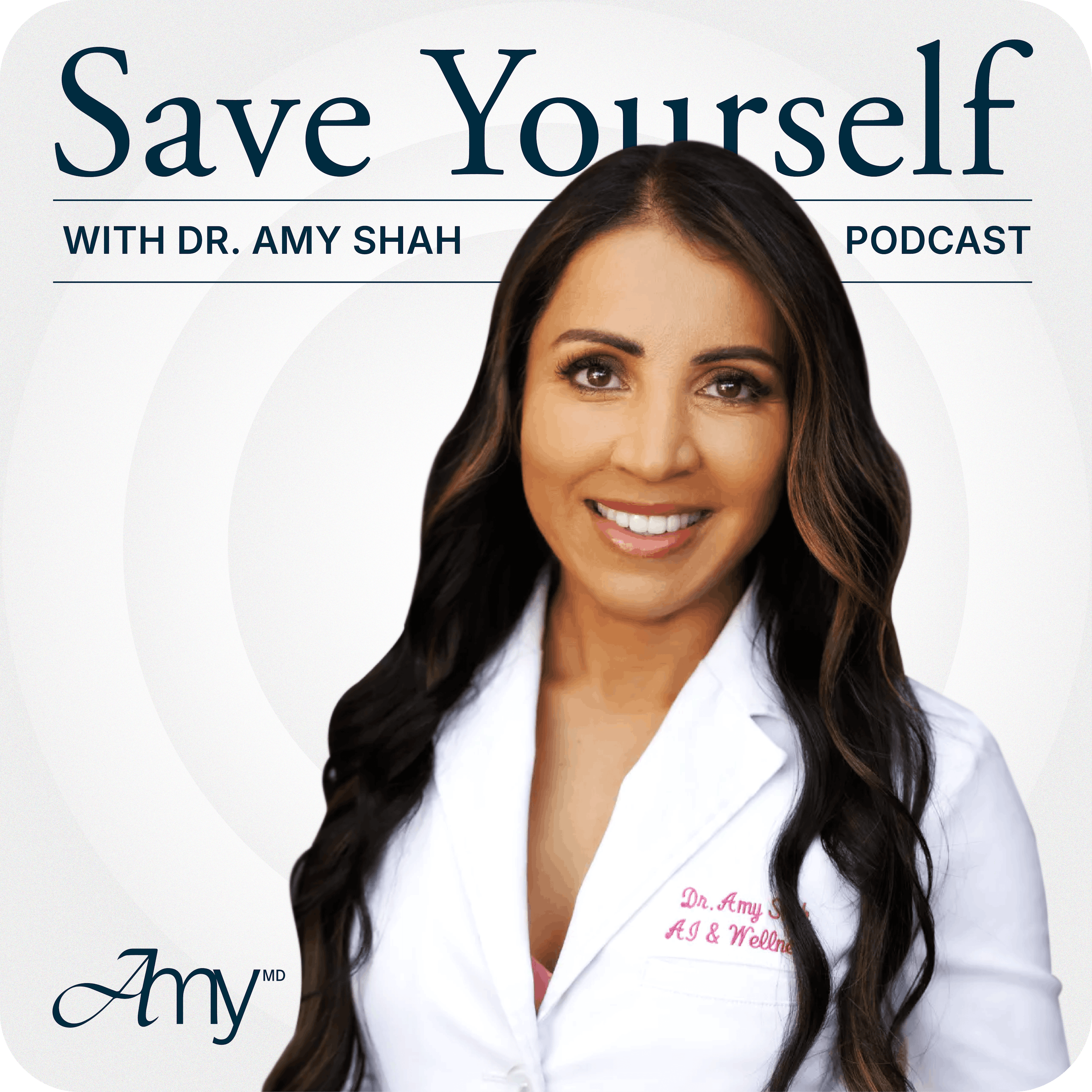
Save Yourself With Dr. Amy Shah
Dr. Amy Shah
Huberman Lab
Scicomm Media
The Peter Attia Drive
Peter Attia, MD
The Metabolic Classroom with Dr. Ben Bikman
Insulin IQ
FoundMyFitness
Rhonda Patrick, Ph.D.
Change Your Brain Every Day
Dr Daniel & Tana Amen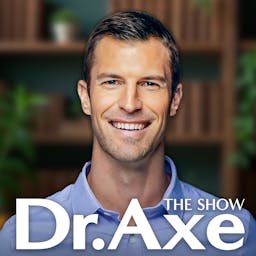
The Dr. Josh Axe Show
Dr. Josh Axe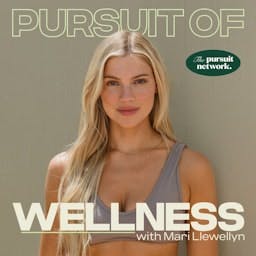
Pursuit of Wellness
Mari Llewellyn & Pursuit Network
Feel Better, Live More with Dr Rangan Chatterjee
Dr Rangan Chatterjee: GP & Author
The Level Up Podcast w/ Paul Alex
Paul Alex Espinoza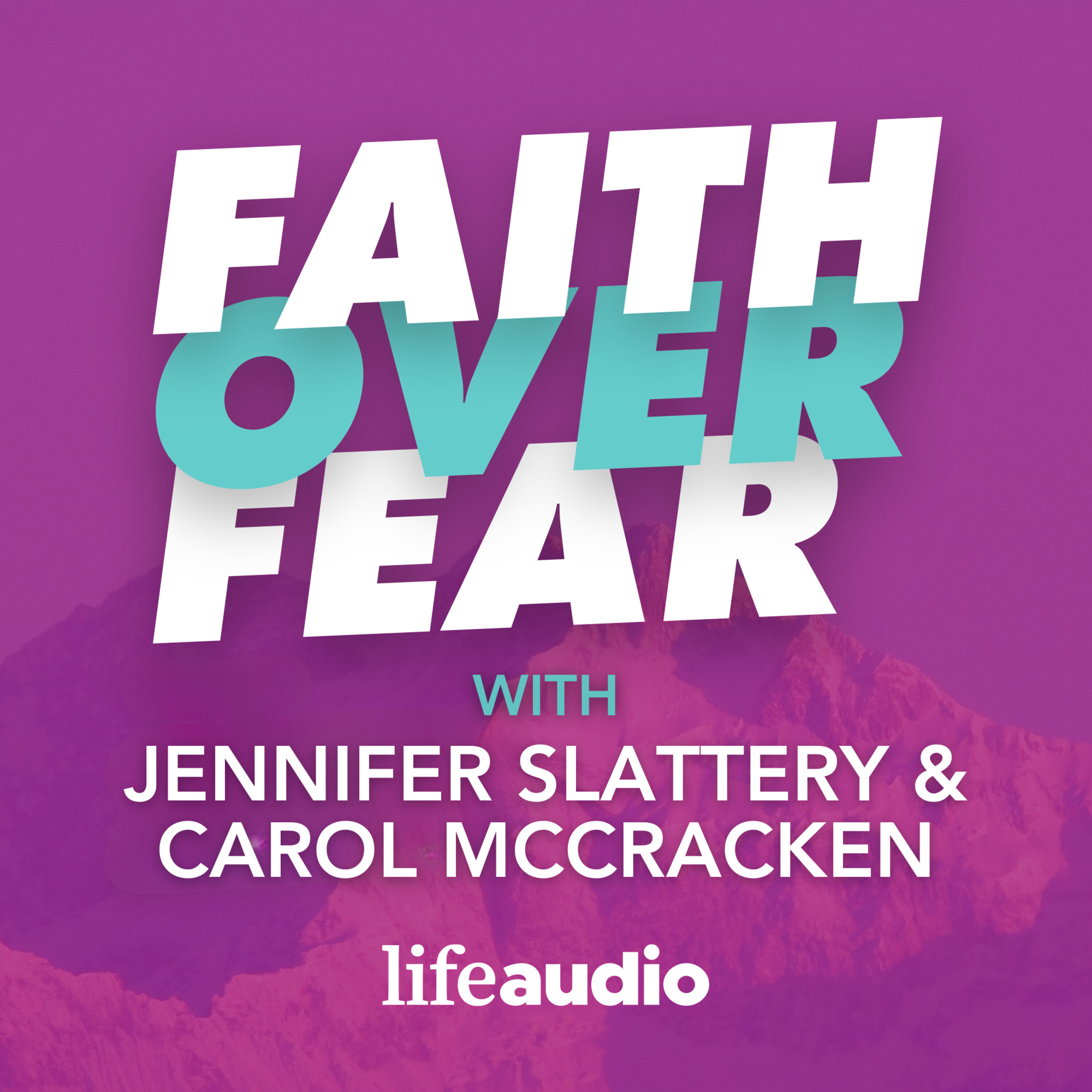
Faith Over Fear
Jennifer Slattery, Faith Over Fear Author and Speaker